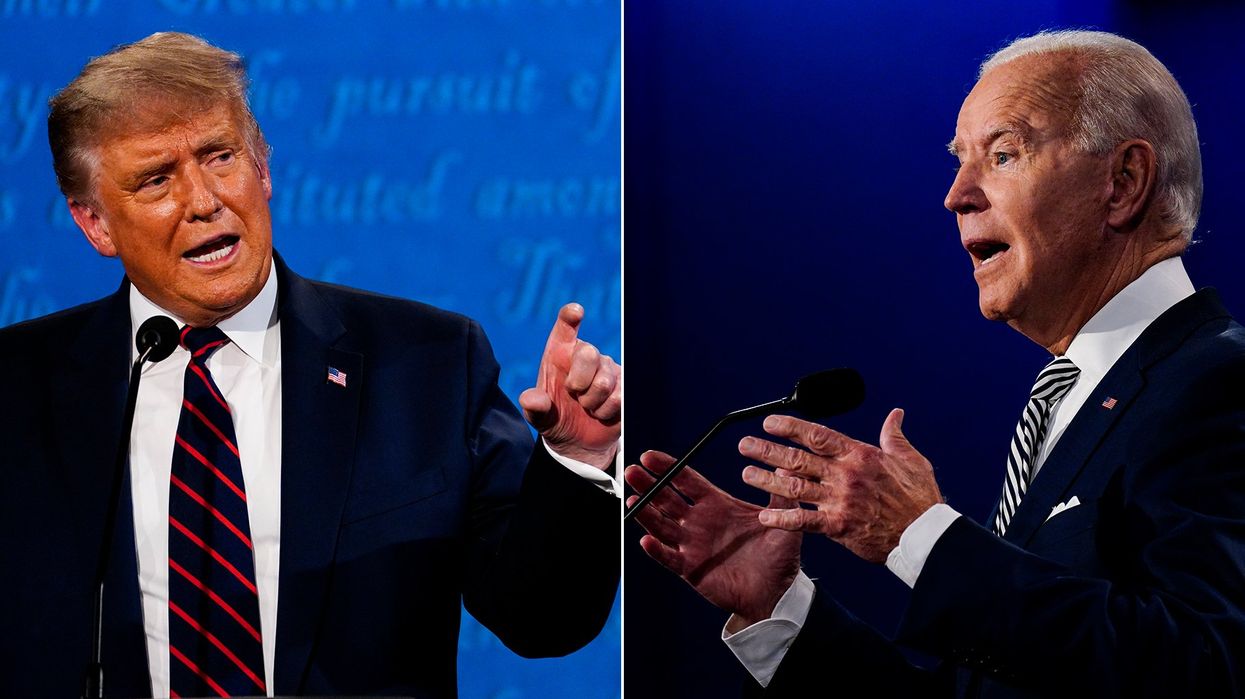Opdycke is the founder and president of Open Primaries, a national advocacy organization working to enact and protect open and nonpartisan primaries and enhance the visibility and power of independent voters. His monthly column, Brack Tacks, offers insights into how a people-powered, non-ideological democracy movement can be most effective in revamping our political process and culture to meet the needs of a complex and ever-changing 21st century landscape.
I’ve been an independent voter since I was 18. Back then, I knew less than zero about politics. I went to the University of Michigan to play soccer, get an education and learn something about how the world worked.
I started attending Democratic and Republican events on campus to figure out where I stood and how I could make a positive contribution. I stood and applauded when Jesse Jackson raised the rafters at Crisler Arena in 1988. I was inspired by Jackson, but the campus left was dreadful – they were woke before woke had awoken. And the campus Republicans wanted nothing to do with me. They seemed more interested in being provocateurs than accomplishing anything serious. So I stayed independent and didn’t join a team. It was a lonely decision but I’m glad I made it.
Today, independents are surging. We're the largest political identity (or anti-identity) in the country. The surge is led by young people but is much broader than that. Americans are fleeing the parties as the partisan acrimony increases and the capacity of our binary system to produce effective leadership and governance plummets.
And yet, while the number of independents has skyrocketed, the number of competitive elections has decreased, as have unpredictable outcomes. In 1984, Republican Ronald Reagan won 49 states! That’s inconceivable today, when conventional wisdom dictates that only five to eight states are up for grabs in November. How is it that the country has become much less attached to the parties, and yet the outcomes are decided by a few hundred thousand people in a handful of states?
I think it has to do with a relatively rapid transformation that has taken place in both major parties. In different ways and for different reasons, both parties have abandoned public politics in favor of palace politics – using guile and positioning (and clever algorithms and buckets of cash) to secure a desired outcome. Ordinary people play only a performatory or symbolic role in palace politics. It was all the rage in France in 1750. It’s alive and well in Moscow. But palace politics is not a good fit for the United States.
I spoke with Rep. Dean Phillips about this dynamic in the most recent Open Primaries Virtual Discussion. He’s running in the primary against President Joe Biden because he doesn’t think the country benefits by coronating an 81-year-old incumbent to be the Democratic nominee. We had a great talk and he described in detail how the Democratic National Commitee is preventing him from making his case to the voters. Former U.N. Ambassador Nikki Haley is doing the same in the Republican primary. But with few notable exceptions, every Democratic and Republican bigwig is saying some version of “things have been decided, we’re now on to the general election.” A handful of people have voted in just two states, and it’s over. Wow.
What’s remarkable is how willing the parties are to accept this state of affairs. It says something about the culture in both organizations – the level of control, orthodoxy, careerism and lockstep mentality – that few voices are raising concerns about the lack of competition.
The entire Republican and Democratic Party apparatuses seem confident that they will emerge the victor when this $10 billion negative campaign is over on Nov. 5. The Biden team points to Trump’s dismal appeal among independent voters in New Hampshire and insists the Democrat will win those votes by default. The Trump team points to Biden’s historically low approval ratings and believe they can capitalize. Neither campaign offers a positive and inclusive vision for the future nor an answer to the question, “Is this really the best we can do?”
And that’s the question every independent as well as most Democrats and Republicans are asking. Neither campaign has an answer, because they don’t really care. They just want to get one more vote than the other guy – who cares if 80 percent of us are grinding our teeth.
The brainiacs at the “All-In Podcast” think this could be the year a major independent or third-party candidate emerges. I hope they are right. But to be honest, I’m hoping for something even bigger. I hope this is the start of the American people reclaiming our proper role in the political process.
When it comes to voting, we’ve been relegated to one-day-a-year consumers. We’ve got to become day-in-and-day-out builders, creators and catalysts. I think independents are positioned to take the lead on this kind of cultural transformation. We’ve already said we’re not loyal to one brand. Now we need to lead the country in taking back our political power. The parties – both of them – have wasted it. They are going to spend $10 billion this year driving us insane and trying to convince us that the other guy is worse.
I’m betting on people power in 2024.




















Marco Rubio is the only adult left in the room